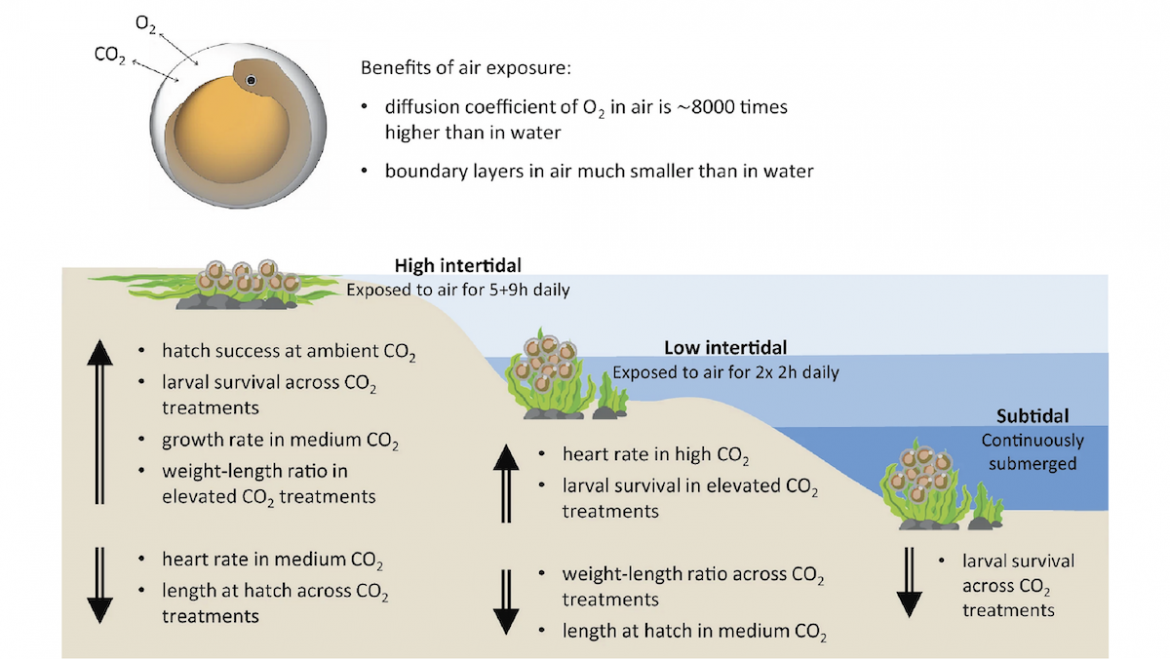
Graphical abstract summarizing the findings on the combined effects of intertidal air exposure and CO2
Abstract
Ocean acidification can negatively impact the early life-stages of marine fish, due to energetic costs incurred by the maintenance of acid–base homeostasis, leaving less energy available for growth and development. The embryos of intertidally spawning fishes, such as Pacific herring, are often air exposed for hours. We hypothesized that air exposure would be beneficial to the developing embryo due to a higher oxygen availability (and thus reduced metabolic costs to secure adequate oxygen) and permitting excess CO2 associated with ocean acidification to be off-gassed during emersion. To investigate this, we reared Pacific herring (Clupea pallasii) embryos under three tidal regimes (subtidal: fully immersed, low intertidal: 2 × 2 h air exposure, and high intertidal: 5 + 9 h air exposure) fully crossed with three aquatic CO2 levels (400, 1500 and 3200 µatm) at a water temperature of 9.5 °C and naturally fluctuating air temperature during air exposure. We measured the effects on embryonic development and hatch, as well as carry-over effects on larval development and survival. Air exposure during embryonic development had significant positive effects on growth, condition and survival in larval Pacific herring, with some interactive effects with CO2. Interestingly, CO2 by itself in the fully immersed treatment had no effect, but had significant interactions with air exposure. Our research suggests that air exposure during low tide can be highly beneficial to intertidally spawning fishes and needs to be taken into account in climate change studies and modeling.